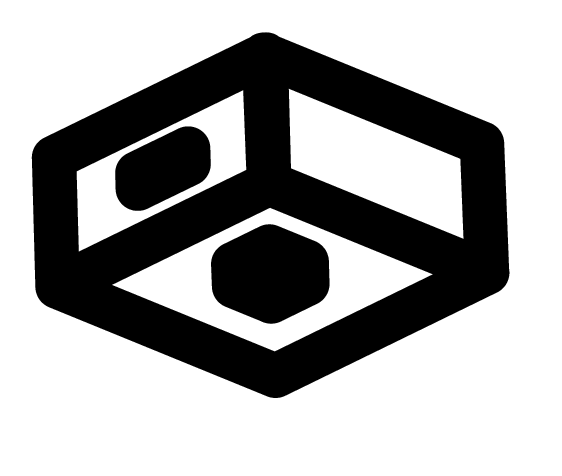Trust: The Key To Healthcare's Digital Front Door
Lisa is head of Industry Solutions for the Healthcare Provider business at NTT DATA Services. Follow Lisa @lisaesch.

GETTY
As a former dietician, I always evaluate recipe ingredients and whether those ingredients are fresh and healthy. Then, I think about creating the ideal recipe for healthcare's digital front door, and the first ingredient I go to is trust.
Why trust? Simply because delivering innovative healthcare depends on data and our confidence in that data's security.
The Future Of Care Is Already Here
Today in healthcare, we can take advantage of fantastic technology that gives us the freedom to live at home, work and play — all while monitoring our health. Your smartwatch counts how many steps you take toward your wellness goal. Your sister can put on a blood pressure cuff and transmit metrics to a care provider via the same cellular signals as a mobile phone. Your father can wear a monitor that alerts providers when he's fallen or is having a heart attack. These capabilities are just the beginning. In the future, our devices will gather and analyze wellness data so that care providers can intervene before a crisis occurs.
Remote devices are a path to the digital front door leading us to personalized, proactive healthcare. They will help us take charge of our health outcomes, and frankly, we need to empower everyone to self-care.
But Can I Trust You?
We know it isn't easy for many of us to visit the doctor. Access to care in rural areas is spotty. Even when quality care is available nearby, negotiating the logistics of work, family and transportation can make visiting a clinic difficult — especially if you don't feel well.
Now, provider attrition from the Covid-19 pandemic presents another cause for concern. The shortage of clinicians that has been forecast seems inevitable after a year in which many providers and their support teams have worked long hours while being exposed to the virus, tragedy and death.

Remote wellness monitors, telehealth and provider chat sessions available 24/7, web portals offering a direct line to your physician — that is our healthcare future. As much as we need the benefits of technology, however, neither providers nor patients will use it if they don't trust it.
Here is the tricky part of remote technology: All of those devices send information about us through the ether. Once upon a time (not many years ago), the only data we typically generated as consumers were our names, addresses and phone numbers. Now, we create a trove of data every time we use a connected device. Sometimes, we can negotiate the ownership and use of that data by submitting our email address or agreeing to cookies. Sometimes, we have no option but to connect.
Users understand that many people want to profit from that data. Businesses leverage it to improve customer experiences and sell us more products. Criminals plunder it, especially when it's linked to financial institutions, bank accounts and credit cards.
The need for digital security is a given today, but we regularly hear about data breaches. Around healthcare, people's distrust in data security is not misplaced.
Effective If Done Right, Expensive If Done Wrong
Take, for example, the challenge faced by Finnish company Vastaamo. This network of mental health clinics experienced a data breach in which hackers stole not just personally identifying information but clinicians' notes on patient psychotherapy sessions. These notes included highly sensitive revelations, sometimes from children and high-profile individuals. Worst of all, the hackers didn't hit Vastaamo with ransom demands; instead, they threatened its users with texts demanding 200 euros or more in bitcoin to keep their private notes private.
One of the hard pills to swallow is that the Vastaamo hack possibly could have been avoided with simple tools like anonymization or pseudonymization of records and encryption. Data breaches like this teach us that trust and security can't be an afterthought; they must be embedded throughout the solution design and delivery pipeline. The evolution of software development from DevOps to DevSecOps is one such approach.
There are other creative trust-building tools already here or just within reach:
• The Baltic country of Estonia has centralized health records for each citizen, all stored and protected by KSI blockchain technology.
• The father of the web, Tim Berners-Lee, is building data vaults called Pods (personalized online data stores) to empower individuals to have control over their data.
• Attribute-based encryption (ABE) may provide the data protection needed for secure implementation of healthcare IoT devices such as blood sugar monitors and remote infusion and insulin pumps.
• Data protection governance models offer a legal framework for ensuring data privacy, such as the U.K.'s General Data Protection Regulation (GDPR) and the California Consumer Privacy Act.
Trust In Secure Care Anywhere
Trust cultivated through data security is the key ingredient to building healthcare's digital front door. A recent NTT whitepaper states that, with so much data at stake, ensuring digital trust requires that all organizations focus on resilience and cybersecurity.
Fortunately, tools and training are readily available to build the in-house teams and infrastructure required for the task. Alternatively, in our era of managed security services, no company needs to go it alone. Instead, working with a cybersecurity provider could create the opportunity to build the solid, secure, patient-centered tools desired by patients and providers. Once secured, that trusted digital front door can open the path for patients and providers to an era of seamless lifelong care.

 Attendees
Attendees
 Sponsors and Exhibitors
Sponsors and Exhibitors
 AI In Healthcare: A Virtual Course
AI In Healthcare: A Virtual Course
 Contact us
Contact us